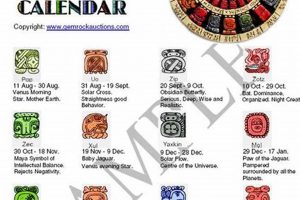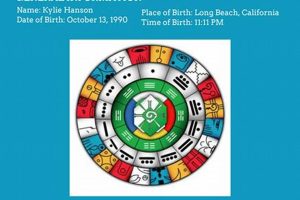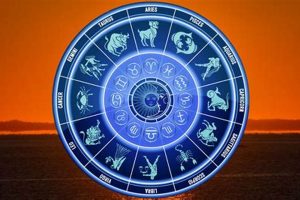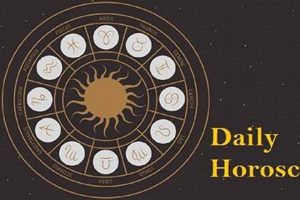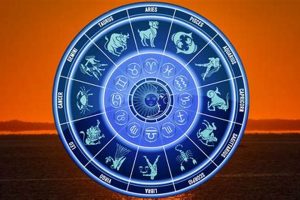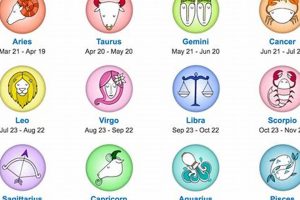In the Mayan tradition, astrological compatibility explores the energetic connections between individuals based on their birth dates within the complex Mayan calendar system. This system, incorporating cycles like the Tzolkin (sacred calendar) and the Haab (civil calendar), offers a nuanced perspective on personality and destiny. For instance, individuals born under certain day signs or within specific periods may be deemed more harmonious with others based on the perceived energies these periods embody.
Understanding these interconnections provides insight into the dynamics of relationships, offering potential guidance for navigating personal interactions. Historically, these principles played a role in various aspects of Mayan life, potentially influencing social structures and decision-making. This practice suggests a way to gain self-awareness and potentially foster stronger, more fulfilling connections with others.
This exploration will further delve into the specific components of the Mayan calendar relevant to interpersonal dynamics, detailing how day signs, numbers, and other calendrical elements contribute to the overall assessment of harmonious connections. Subsequent sections will examine the practical applications of this system in modern contexts.
These tips offer practical guidance for understanding and applying the principles of Mayan astrology to enhance interpersonal relationships.
Tip 1: Determine Birth Signs: Accurate assessment requires precise knowledge of birth dates. Consult reliable resources to determine corresponding Mayan day signs and numbers for all individuals involved.
Tip 2: Research Day Sign Characteristics: Each day sign possesses unique energetic qualities. Research these attributes to understand the inherent strengths and challenges individuals bring to a relationship.
Tip 3: Consider Calendar Round Compatibility: The combined energies of the Tzolkin and Haab calendars offer a more complete picture. Explore how these combined influences impact overall compatibility.
Tip 4: Consult with an Expert: For in-depth analysis, consider seeking guidance from an expert in Mayan astrology. Expert interpretation can provide personalized insights.
Tip 5: Focus on Self-Awareness: Astrological compatibility serves as a tool for understanding, not a definitive predictor. Use this information to develop greater self-awareness and improve communication within relationships.
Tip 6: Respect Individuality: While compatibility offers valuable insights, remember that individual choices and actions shape relationships. Avoid rigid interpretations and allow space for personal growth.
Tip 7: Integrate Insights with Open Communication: Combine astrological knowledge with open and honest dialogue. Use the insights gained to foster greater understanding and empathy within relationships.
By understanding and thoughtfully applying these principles, individuals can gain valuable insights into relationship dynamics and cultivate stronger connections.
These insights provide a foundational understanding. The concluding section will address common questions and further resources for exploration.
1. Energetic Connections
Within Mayan astrology, compatibility hinges on the concept of energetic connections between individuals. These connections, derived from birth dates correlated to the Mayan calendar system, are believed to influence the dynamics and potential harmony of relationships. Understanding these energetic links offers a framework for interpreting interpersonal interactions.
- Day Sign Resonance
Each day sign within the Tzolkin calendar possesses unique energetic qualities. These qualities can interact harmoniously or create friction between individuals. For example, the energy of the day sign Imix, associated with creation and nurturing, might resonate positively with the energy of Kan, linked to growth and vitality. Conversely, the assertive energy of Chicchan might create tension with the more introspective energy of Men. Analyzing these resonances provides insight into potential strengths and challenges within relationships.
- Number Symbolism
Numbers within the Mayan calendar hold symbolic meaning and contribute to energetic connections. The numbers one through thirteen represent different cycles of energy and influence personality traits. Understanding these numerical influences provides another layer of interpretation. For instance, a pairing involving the number seven, associated with introspection, and the number four, associated with stability, could signify a relationship balanced by reflection and groundedness.
- Combined Calendar Influence
The interplay between the Tzolkin and Haab calendars further refines energetic connections. The combined energies create a more nuanced picture of individual characteristics and potential relationship dynamics. The convergence of specific day signs and Haab positions during birth can indicate particular affinities or challenges.
- Cosmic Influences
Mayan cosmology incorporates the influence of celestial bodies and deities. These broader cosmic influences are believed to further shape individual energies and interpersonal dynamics. Certain planetary alignments or associations with specific deities might be considered auspicious or challenging for particular pairings.
By considering these different facets of energetic connections within the framework of Mayan astrology, a deeper understanding of compatibility emerges. This perspective offers valuable insights into potential relationship patterns, providing a framework for navigating interpersonal dynamics and fostering greater harmony.
2. Birth Date Significance
Within Mayan astrology, birth dates hold profound significance, serving as the foundation for understanding individual characteristics and interpersonal compatibility. The Mayan calendar system, a complex interplay of cyclical counts, assigns unique energies to each day, influencing personality, destiny, and relationships. Analyzing birth dates reveals these underlying energies, providing insights into potential harmonies and challenges between individuals.
- Day Sign Determination
The Tzolkin, or sacred calendar, comprises 260 days, each associated with a specific day sign. An individual’s day sign is determined by their birth date and represents core personality traits. For instance, someone born on a day associated with the sign Imix might exhibit nurturing qualities, while someone born under Chicchan might possess a more assertive nature. Understanding these inherent characteristics is crucial for assessing compatibility.
- Number Influence
Each day within the Tzolkin also corresponds to a number from one to thirteen, representing distinct energy cycles. These numbers add another layer of nuance to personality interpretation. The number seven, associated with introspection, combined with the day sign Imix, could indicate a deeply reflective and nurturing individual. This numerical influence further refines the understanding of individual characteristics and their impact on compatibility.
- Haab Correlation
The Haab, or civil calendar, consisting of 365 days, provides further context. While less central to personality analysis, the Haab position of a birth date offers additional insights into life path and external influences. The interplay between the Tzolkin and Haab creates a comprehensive energetic profile relevant to compatibility assessments.
- Calendar Round Significance
The combined cycles of the Tzolkin and Haab create a 52-year Calendar Round. This longer cycle represents a significant period within Mayan cosmology. Individuals born within the same Calendar Round share a broader energetic connection, which can influence compatibility dynamics.
By deciphering the intricate connections between birth dates and the Mayan calendar system, a deeper understanding of individual characteristics and relationship potentials emerges. This intricate framework provides valuable insights into navigating interpersonal dynamics and fostering harmonious connections within the context of Mayan astrology. Further exploration of specific day sign combinations and their interactions can enhance this understanding.
3. Calendrical Influences
Calendrical influences form the backbone of Mayan astrology compatibility. The intricate interplay of the Tzolkin (sacred calendar) and the Haab (civil calendar) provides the framework for understanding individual energies and their interactions. The Tzolkin, a 260-day cycle composed of 20 day signs and 13 numbers, determines an individual’s primary energetic signature. Each day sign, such as Imix or Ik, carries specific qualities believed to influence personality and destiny. The number associated with the day further refines these qualities, representing different cycles of energy. The Haab, a 365-day solar calendar, adds another layer of influence. While less central to personality analysis, the Haab position of a birth date provides context related to life path and worldly influences. The combined positions within both calendars create a unique energetic profile, impacting compatibility assessments. For example, two individuals born under the same Tzolkin day sign but different Haab positions might share core personality traits yet experience life differently, influencing their dynamic.
The significance of calendrical influences extends beyond individual characteristics. The interaction between two individuals’ combined Tzolkin and Haab positions reveals potential harmonies and challenges. Certain day sign combinations are considered more auspicious, suggesting a natural flow of energy and shared understanding. Others might present more friction, indicating potential areas of growth and learning within the relationship. Furthermore, the concept of the Calendar Round, a 52-year cycle created by the interwoven Tzolkin and Haab, plays a role. Individuals born within the same Calendar Round are considered to share a generational energy, which can influence broader compatibility patterns. For instance, two individuals born within the same Calendar Round, even with differing day signs, might share a deeper understanding of certain life themes.
Understanding these calendrical influences is crucial for interpreting Mayan astrology compatibility. This intricate system provides a nuanced perspective on interpersonal dynamics, offering insights into potential strengths, challenges, and growth opportunities within relationships. While not a deterministic predictor, it serves as a valuable tool for self-awareness and navigating the complexities of human connection. Further exploration of specific day sign combinations, numerical influences, and the interplay between the Tzolkin and Haab calendars provides a more complete understanding of this system.
4. Relationship Dynamics
Relationship dynamics, the patterns of interaction and behavior between individuals, find a unique interpretive lens within Mayan astrology. Compatibility assessments, based on birth dates correlated to the Mayan calendar system, offer insights into these dynamics, highlighting potential strengths, challenges, and growth opportunities. This framework provides a nuanced perspective on how individuals interact and navigate the complexities of interpersonal connections.
- Communication Styles
Mayan astrology associates different communication styles with specific day signs. For example, individuals born under the sign Etznab might exhibit strong communication skills, while those born under Ok could be more reserved. Understanding these inherent tendencies can illuminate communication patterns within a relationship. A pairing between these signs might require conscious effort to bridge the gap between expressive and reserved communication styles.
- Emotional Expression
Emotional expression varies based on individual energetic profiles derived from Mayan astrology. Some day signs, like Akbal, are associated with emotional depth and sensitivity, while others, like Ben, might express emotions more externally. Compatibility assessments consider these differences, shedding light on how emotions are expressed and processed within a relationship. A partnership between Akbal and Ben might navigate emotional landscapes by learning to balance internal processing with external expression.
- Conflict Resolution
Mayan astrology provides insight into conflict resolution styles. Certain day signs, such as Caban, might approach conflict directly, while others, like Muluc, might seek more harmonious resolutions. Understanding these tendencies can aid in navigating disagreements constructively. A relationship between Caban and Muluc might require finding a balance between direct confrontation and peaceful compromise.
- Shared Values and Goals
While not directly determined by day signs, shared values and goals play a crucial role in relationship dynamics. Mayan astrology can indirectly illuminate these aspects by providing insight into individual motivations and life paths. For example, individuals born under the sign Kej, associated with leadership, might prioritize achieving ambitious goals, while those born under Manik, associated with artistic expression, might prioritize creative pursuits. Understanding these underlying motivations contributes to assessing long-term compatibility and shared vision.
By exploring these facets of relationship dynamics through the lens of Mayan astrology, individuals gain a deeper understanding of interpersonal patterns. This framework offers valuable insights into how individuals interact, communicate, and navigate challenges within relationships. While not a predictive tool, it empowers individuals to navigate their connections with greater awareness and understanding, fostering stronger and more fulfilling relationships. Applying these principles in conjunction with open communication and mutual respect can enhance relationship harmony and growth.
5. Interpersonal Harmony
Interpersonal harmony, the state of positive and balanced relationships characterized by understanding and empathy, finds a unique framework within Mayan astrology compatibility. This system, based on the intricate cycles of the Mayan calendar, offers a nuanced perspective on how individual energies interact, influencing the potential for harmonious connections. Compatibility assessments within this framework consider the energetic resonance between individuals’ birth dates, suggesting potential strengths and challenges in achieving interpersonal harmony. For instance, two individuals born under complementary day signs, such as the nurturing energy of Imix and the supportive energy of Ik, might experience a natural flow of understanding, fostering a harmonious dynamic. Conversely, contrasting energies might present opportunities for growth through navigating differences, ultimately contributing to a deeper, more balanced harmony.
The significance of interpersonal harmony within Mayan astrology extends beyond simply avoiding conflict. It represents a state of energetic balance and mutual support, contributing to overall well-being and personal growth. This perspective emphasizes that challenges within relationships are not necessarily negative but rather opportunities for learning and deepening connection. For example, a pairing between the assertive energy of Chicchan and the more introspective energy of Men might initially experience friction. However, by understanding these inherent differences through the lens of Mayan astrology, they can learn to appreciate and balance these energies, fostering a deeper and more nuanced harmony.
Understanding the connection between interpersonal harmony and Mayan astrology compatibility provides a valuable tool for navigating relationships. This framework offers insights into potential communication styles, emotional expression patterns, and conflict resolution approaches. While not a deterministic predictor of relationship success, it empowers individuals with self-awareness and understanding, enabling them to navigate interpersonal dynamics with greater intention. Challenges in achieving harmony become opportunities for growth, fostering stronger and more fulfilling connections. This understanding emphasizes the importance of respecting individual differences and leveraging the wisdom of the Mayan calendar to cultivate balanced and harmonious relationships.
Frequently Asked Questions about Mayan Astrology Compatibility
This section addresses common inquiries regarding Mayan astrological compatibility, providing clear and concise explanations to foster understanding.
Question 1: How does Mayan astrology differ from other astrological systems?
Mayan astrology emphasizes the cyclical nature of time and the interconnectedness of energies, utilizing a distinct calendar system based on the Tzolkin and Haab. Unlike Western astrology, which focuses on planetary transits, Mayan astrology centers on the energies associated with specific days within these calendars.
Question 2: Is Mayan astrology compatibility deterministic?
Compatibility assessments offer insights into potential dynamics, not predetermined outcomes. Individual choices and actions remain paramount in shaping relationships. Mayan astrology provides a framework for understanding, not a prediction of destiny.
Question 3: How are Mayan day signs determined?
Day signs are derived from birth dates using the Tzolkin calendar. Reliable online resources and Mayan astrology specialists can assist in accurately determining one’s day sign.
Question 4: What is the significance of the Calendar Round in compatibility?
The 52-year Calendar Round, formed by the intersection of the Tzolkin and Haab calendars, represents a significant life cycle within Mayan cosmology. Individuals born within the same Calendar Round share a generational energy that can influence compatibility.
Question 5: Can Mayan astrology improve existing relationships?
By understanding the energetic dynamics within a relationship, individuals can gain insights into communication styles, emotional expression, and conflict resolution patterns. This awareness can facilitate greater understanding and empathy, fostering improved communication and stronger connections.
Question 6: Where can one find further information on Mayan astrology compatibility?
Reputable books, online resources, and consultations with Mayan astrology experts can provide deeper insights into this complex system. Thorough research and seeking guidance from knowledgeable practitioners is recommended.
Understanding the nuances of Mayan astrology compatibility empowers individuals to approach relationships with greater awareness and insight. This framework offers valuable perspectives on interpersonal dynamics, fostering stronger and more fulfilling connections.
Further exploration of specific day sign combinations and their interactions provides a more comprehensive understanding of this rich astrological system. Consulting with experienced practitioners can offer personalized guidance.
Mayan Astrology Compatibility
This exploration of Mayan astrological compatibility has delved into the intricate connections between birth dates, calendar systems, and interpersonal dynamics. Key elements examined include the significance of day signs, the influence of the Tzolkin and Haab calendars, and the interpretation of energetic interactions within relationships. This framework offers a nuanced understanding of potential harmonies and challenges, providing valuable insights into communication styles, emotional expression, and conflict resolution approaches.
Mayan astrological compatibility presents a unique perspective on the complexities of human connection. While not a deterministic predictor of relationship outcomes, it serves as a powerful tool for self-awareness and understanding. Further research and exploration of this intricate system can empower individuals to navigate relationships with greater insight, fostering deeper connections and more harmonious interactions. The potential for growth and enhanced understanding within interpersonal dynamics underscores the enduring relevance of this ancient system in the modern world.


